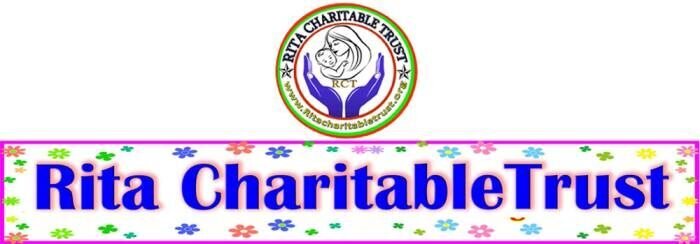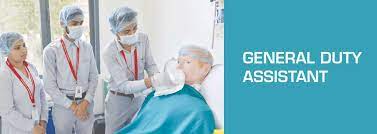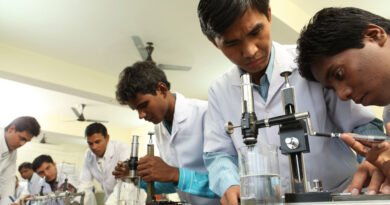Free Frontline Health Worker Course (equivalent to ASHA) Course(1year Diploma
Accredited Social Health Activist: -Voluntary health worker engaged at village level in implementation and support of National health programmes
Brief Job Description: -Individuals in this job provide support to Allied health workers engaged in National health programmes, act as health counsellors to local communities and provide healthcare services Frontline Health Worker Course.
Personal Attributes: -The job requires individuals to be well embedded within local communities and be comfortable in interacting with all sections of the community. The individual should be comfortable with providing support to community members at odd hours and should be reassuring and accessible to all community members.


Assist the Village Health, Sanitation & Nutrition Committee (VHSNC) Frontline Health Worker Course:- To be competent, the user/individual on the job must be able to:
PC1. Ensure participation of all relevant stakeholders and communities in the village Health plan
PC2. Prepare for the Village Health Plan by observing and prioritising health, nutrition and sanitation needs of the community
PC3. Contribute effectively to the implementation of the Village Health Plan by observing and reviewing all incidence of diseases covered under national health programmes, all the programmes under NRHM, ICDS and TSC; maternal and child deaths and other health indicators for the village
PC4. Ensure participation of VHSNC members in the Village health nutrition day Frontline Health Worker Course.
PC5. Contribute to the Village Health Plan by undertaking the Household Health Survey of the village
PC6. Support the VHSNC in utilisation of the untied Fund for the VHSNC and the sub-centre as per the Village Health Plan
PC7. Support the VHSNC in submitting the Utilisation Certificates for the untied Fund
Counsel women on contraception and prevention of common infections and RTI/STI Frontline Health Worker Course:- To be competent, the user/individual on the job must be able to:
PC1. Advise women on proper hygiene and cleanliness related to sexual and reproductive health
PC2. Disseminate information about prevention of RTIs/HIV/AIDS
PC3. Dispel any rumours or misconceptions about contraceptives in villages
PC4. Talk about benefits of family planning to couples, individuals and adolescents at different occasions
PC5. Counsel couples on delay of first pregnancy immediately after marriage
PC6. Ensure that every couple that needs contraceptive services is counselled on where to avail of the service
PC7. Ensure that there is no unmet need for spacing contraception among the population living Below the Poverty Line (BPL) PC8. Promote male participation in family planning
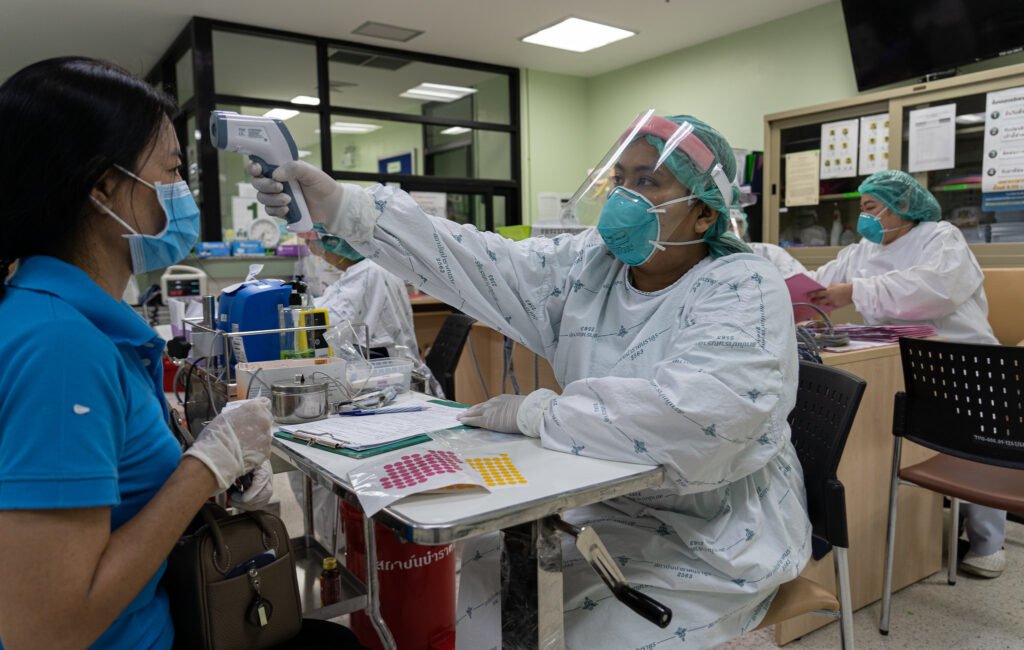
PC9. Educate men and women on natural contraceptive methods
PC10. Counsel women about contraceptive methods including Copper-T 320
PC11. Explain the duration of protection and provide advice on professionals qualified to insert longer term contraceptives (like the Copper T)
PC12. Accompany women to the nearest health centre for putting in place longer term contraceptives (like Copper T)
PC13. Escort women to the ANM/ Medical Officer prior to usage of oral contraceptives Frontline Health Worker Course.
PC14. Provide oral contraceptives to women after visit to the ANM/ Medical officer
PC15. Help the ANM to contact women wanting to have a Copper-T insertion
PC16. Explain the benefits of sterilisation to couples having two children or wanting terminal method
PC17. Explain the advantages of vasectomy over tubectomy
PC18. Explain the procedures available for sterilisation (for men and women) and the time, cost and processes required for each
PC19. Find out the facilities where sterilisation services such as No-Scalpel Vasectomy and female sterilisation are available
PC20. Accompany men and women wishing to undergo sterilisation to a facility where these services are provided
PC21. Advise men and women undergoing sterilisation about monetary incentives offered by the state if any
PC22. Ensure there is no unmet need for contraception in the village
PC23. Ensure constant availability of contraceptives as part of social marketing
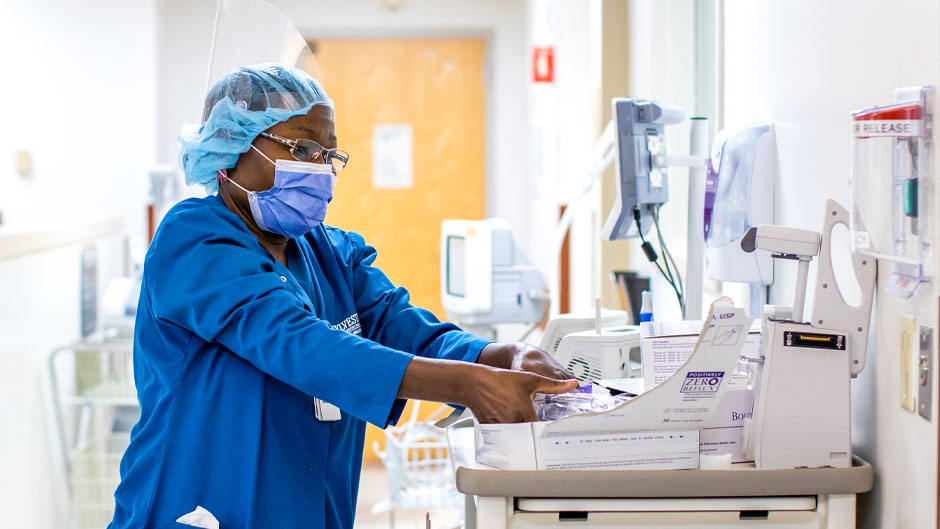
Provide healthcare services to adolescents Frontline Health Worker Course:-
To be competent, the user/individual on the job must be able to:
PC1. Advise adolescents on the changes to expect as they enter puberty
PC2. Counsel adolescent girls on changes to expect related to menstruation, especially Pre-menstrual syndrome
PC3. Counsel adolescent girls and community members on myths related to menstruation
PC4. Advise adolescent girls on proper hygiene and cleanliness related to menstruation Frontline Health Worker Course.
PC5. Answer any questions adolescents may have on sexuality, puberty and health
PC6. Disseminate information about prevention of RTIs/HIV/AIDS
PC7. Organise meetings, sessions and advice forums
PC8. Distribute sanitary napkins
PC9. Ensure a constant supply of sanitary napkins
Counsel women on nutritional and health needs of young children:-
To be competent, the user/individual on the job must be able to:
PC1. Communicate essential messages for prevention of malnutrition Frontline Health Worker Course.
PC2. Provide advice on feeding and on prevention of illness, and on access to health and nutrition services.
PC3. Counsel families to prevent malnutrition and to reverse malnutrition in children below five years
PC4. Counsel families to send young children to the Anganwadi for supplementary nutrition and mothers for take-home rations
PC5. Ensure that all families with children below the age of two years are counselled and supported for the prevention and management of malnutrition and anaemia and for prevention of illness such as malaria, recurrent diarrhoea and respiratory infection
PC6. Ensure that the mother of every child below five years with Diarrhoea, Fever, Acute Respiratory Infection (ARI) and worms is counselled on whether referral is immediately required or whether first contact curative care should be provided at home with home remedies and drugs in the ASHA kit
PC7. Ensure that Child malnutrition rates are reduced in the village
PC8. Ensure that 100% of children with diarrhoea receive ORS
Provide antenatal counselling:–
PC1. Ensure 100% of non-institutional deliveries have skilled assistance
PC2. Ensure 100% of institutional deliveries
PC3. Ensure all eligible institutional deliveries claim benefits under the Janani Suraksha Yojana
PC4. Ensure every pregnant woman receives a Tetanus Toxoid (TT) vaccine and iron folic acid supplements
PC5. Ensure every pregnant woman showing danger signs is referred to the ANM or appropriate health facility
PC6. Ensure that every pregnant woman and her family receive health information for promotion of appropriate healthcare practices – diet, rest and increased use of services which focus on care in pregnancy, delivery, postnatal care and family planning services
PC7. Ensure that every pregnant woman avails of antenatal care (at least 3 visits) and postnatal care at the monthly health worker clinic/Village Health and Nutrition Day
PC8. Ensure that every family with a pregnant woman has made a plan and is prepared for the event of childbirth
PC9. Counsel women on contraception after delivery Frontline Health Worker Course.
Provide postnatal counselling Frontline Health Worker Course:-
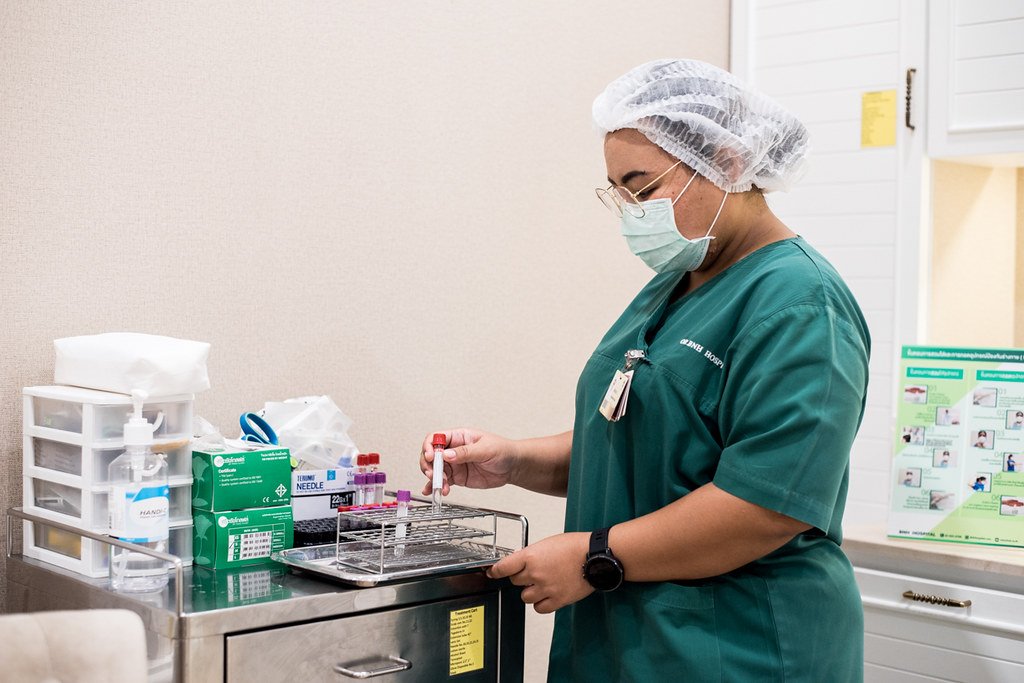
PC1. Ensure that all new-borns are registered with the Anganwadi and the Gram Panchayat
PC2. Ensure that new mothers receive at least one medical check-up within two weeks of delivery
PC3. Counsel new mothers to visit the ANM for minor complaints
PC4. Assist ANMs in conducting postnatal clinic and screening women and children with danger signals.
PC5. Referral of post-natal women in case of danger signs PC6. Counsel women on exclusive breast-feeding for the new born
PC7. Counsel new mothers on contraceptive needs (temporary/permanent) as required and help the women/family to get the same
PC8. Ensure that both new mothers and infants receive supplementary nutrition available at the Anganwadi Centre
PC9. Counsel new mothers on use of contraception post delivery Frontline Health Worker Course.
Counsel women on new-born care and immunisation- To be competent, the user/individual on the job must be able to:
PC1. Counsel women and families on infertility and refer to a medical facility
PC2. Ensure that all pregnancies are registered with the Anganwadi within 12-16 weeks
PC3. Educate families and the community about the dangers of unsafe abortion
PC4. Escort women to approved centres for medical termination of pregnancy (MTP), if needed
PC5. Counsel women on safe abortions and the time duration within which abortions can be performed safely
PC6. Educate them about the need to use effective contraception after undergoing an abortion, so as to minimise the need for further abortions
PC7. Prevent termination of pregnancy after identification of the sex of the foetus as female

Counsel women on childlessness and abortion related issue Frontline Health Worker Course:-
PC1. Ensure 100% of fever cases receive chloroquine within the first week in a malaria endemic area
PC2. Help in increasing number of cases of Tuberculosis diagnosed correctly and early
PC3. Help in increasing number of cases of leprosy diagnosed correctly and early Frontline Health Worker Course.
PC4. Communicate key facts about malaria and its prevention to the community
PC5. Make a blood smear and test using a rapid diagnostic test for malaria
PC6. Manage fever in a young child
PC7. Know when to suspect malaria, how and when to test, when to refer, when and what to treat
PC8. Understand the manner of spread of Tuberculosis and methods of diagnosis
PC9. Support treatment of Tuberculosis and follow-up with patients
PC10. Understand the manner of spread of leprosy and methods of diagnosis
PC11. Support treatment of leprosy and follow-up with patients
PC12. Maintain adequate stocks of DOTS, chloroquine and other primary care medicines contained in the ASHA kit
PC13. Maintain stocks of rapid diagnostic kits, especially in malaria endemic areas Frontline Health Worker Course.
PC14. Ensure that those with fever which could be malaria (or kala – azar) have their blood tested to detect the disease and provide appropriate care/referral
PC15. Ensure that village/ medical authorities are alerted in case of an outbreak of malaria, leprosy or TB
9.Performance Criteria:-
To be competent, the user/individual on the job must be able to:
PC1. Diagnose common health problems including:
a. Danger signs during pregnancy
b. Symptoms of chronic infectious diseases like TB
c. Symptoms of infectious diseases like Malaria
d. Danger signs in infants and small children
PC2. Refer patients to the appropriate medical facility when required
PC3. Escort patients to the appropriate medical facility when required Frontline Health Worker Course.
PC4. Arrange for transportation to the nearest medical facility when escorting a patient
PC5. Ensure display of referral transport details in prominent places
10.Performance Criteria:-

To be competent, the user/individual on the job must be able to:
PC1. Build a rapport with the community members, especially the women in the community
PC2. Organise a home visit schedule to cover all homes in the community
PC3. Mobilise pregnant women and new mothers to receive ante and postnatal care and supplementary nutrition
PC4. Mobilise pregnant women to have institutional deliveries
PC5. Mobilise parents to have their children immunized
PC6. Mobilise community members with possibility of STIs/ RTIs, communicable diseases, chronic diseases or other ailments to have tests done or to take treatment
PC7. Mobilise the community to adopt health and hygiene related precautions (e.g. disinfect stagnant pools of water, wash hands often etc.)
PC8. Facilitate implementation of national health plans and schemes
11.Performance Criteria:-
To be competent, the user/individual on the job must be able to:
PC1. Explain the importance of a medically safe and hygienic childbirth process
PC2. Explain the potential risks associated with childbirth at home
PC3. Explain the essential requirements for a clean and safe childbirth process at home with a TBA
PC4. Counsel women opting for childbirth with a TBA
PC5. Obtain Clean childbirth kits for the TBA as required
PC6. Counsel the TBA and the pregnant woman on precautions to be taken during childbirth at home
PC7. Counsel the TBA and the pregnant woman on potential danger signs to be aware of during the childbirth process
PC8. Counsel TBA and pregnant woman on referring in case of danger signs
PC9. Keep contact with TBA to keep track of pregnancies
PC10. Counsel TBA on being aware of potential female foeticide and identifying possible cases of sex determination
12.Performance Criteria:- To be competent, the user/individual on the job must be able to:
PC1. Explain the causes of malaria and precautions to be taken for its prevention
PC2. Explain symptoms of malaria PC3. Identify possible cases of malaria before an outbreak
PC4. Mobilise suspected cases of malaria to be tested by the MPW
PC5. Inform the MPW of suspected cases of malaria
PC6. Assist the MPW in collecting blood samples from suspected cases of malaria
PC7. Inform the Primary Health Centre of suspected outbreaks of malaria
13.Performance Criteria:-
To be competent, the user/individual on the job must be able to:
PC1. Keep track of all births, still births and deaths in the village in the course of home visits and other daily work
PC2. Register every birth/still birth with the gram Panchayat within 14 days
PC3. Register every death with the Gram Panchayat in 7 days
PC4. Keep a record of work done in ASHA register/diary
PC5. Track incentive payments due for work done
PC6. Claim incentive payments
PC7. Keep a diary for noting experiences, difficulties and thoughts
PC8. Tally records with those at the Anganwadi and Health sub-centre
PC9. Keep minutes of the VHSNC meetings
14.Performance Criteria:- To be competent, the user/individual on the job must be able to:
PC1. Keep track of any unusual symptoms during the course of home visits and daily work
PC2. Identify disease outbreaks
PC3. Inform the Primary Health Centre of a suspected disease outbreak in a timely mann
15.Performance Criteria:- To be competent, the user/individual on the job must be able to:
PC1. Respond to queries and information needs of all individuals
PC2. Communicate effectively with all individuals regardless of age, caste, gender, community or other characteristics
PC3. Communicate with individuals at a pace and level fitting their understanding, without using terminology unfamiliar to them
PC4. Utilise all training and information at one’s disposal to provide relevant information to the individual
PC5. Confirm that the needs of the individual have been met
PC6. Adhere to guidelines provided by one’s organisation or regulatory body relating to confidentiality
PC7. Respect the individual’s need for privacy
PC8. Maintain any records required at the end of the interaction
16.Performance Criteria:-
To be competent, the user/individual on the job must be able to:
PC1. Maintain adequate supplies of medical and diagnostic supplies
PC2. Arrive at actual demand as accurately as possible
PC3. Anticipate future demand based on internal, external and other contributing factors as accurately as possible
PC4. Handle situations of stock-outs or unavailability of stocks without compromising health needs of patients/ individuals
17.Performance Criteria:-
To be competent, the user/individual on the job must be able to:
PC1. Adhere to legislation, protocols and guidelines relevant to one’s role and field of practice
PC2. Work within organisational systems and requirements as appropriate to one’s role
PC3. Recognise the boundary of one’s role and responsibility and seek supervision when situations are beyond one’s competence and authority
PC4. Maintain competence within one’s role and field of practice
PC5. Use relevant research based protocols and guidelines as evidence to inform one’s practice
PC6. Promote and demonstrate good practice as an individual and as a team member at all times
PC7. Identify and manage potential and actual risks to the quality and safety of practice
PC8. Evaluate and reflect on the quality of one’s work and make continuing improvements
18.Performance Criteria:-
To be competent, the user/ individual on the job must be able to:
PC1. Identify individual responsibilities in relation to maintaining workplace health safety and security requirements
PC2. Comply with health, safety and security procedures for the workplace
PC3. Report any identified breaches in health, safety, and security procedures to the designated person PC4. Identify potential hazards and breaches of safe work practices
PC5. Correct any hazards that individual can deal with safely, competently and within the limits of authority
PC6. Promptly and accurately report the hazards that individual is not allowed to deal with, to the relevant person and warn other people who may get affected
PC7. Follow the organisation’s emergency procedures promptly, calmly, and efficiently
PC8. Identify and recommend opportunities for improving health, safety, and security to the designated person
PC9. Complete any health and safety records legibly and accurately
19.Performance Criteria:-
PC1. Follow the appropriate procedures, policies and protocols for the method of collection and containment level according to the waste type
PC2. Apply appropriate health and safety measures and standard precautions for infection prevention and control and personal protective equipment relevant to the type and category of waste
PC3. Segregate the waste material from work areas in line with current legislation and organisational requirements
PC4. Segregation should happen at source with proper containment, by using different colour coded bins for different categories of waste
PC5. Check the accuracy of the labelling that identifies the type and content of waste
PC6. Confirm suitability of containers for any required course of action appropriate to the type of waste disposal
PC7. Check the waste has undergone the required processes to make it safe for transport and disposal
PC8. Transport the waste to the disposal site, taking into consideration its associated risks
PC9. Report and deal with spillages and contamination in accordance with current legislation and procedures
PC10. Maintain full, accurate and legible records of information and store in correct location in line with current legislation, guidelines, local policies and protocols
20.Performance Criteria:- To be competent, the user/individual on the job must be able to:
PC1. Preform the standard precautions to prevent the spread of infection in accordance with organisation requirements
PC2. Preform the additional precautions when standard precautions alone may not be sufficient to prevent transmission of infection
PC3. Minimise contamination of materials, equipment and instruments by aerosols and splatter
PC4. Identify infection risks and implement an appropriate response within own role and responsibility PC5. Document and report activities and tasks that put patients and/or other workers at risk
PC6. Respond appropriately to situations that pose an infection risk in accordance with the policies and procedures of the organization
PC7. Follow procedures for risk control and risk containment for specific risks
PC8. Follow protocols for care following exposure to blood or other body fluids as required
PC9. Place appropriate signs when and where appropriate
PC10. Remove spills in accordance with the policies and procedures of the organization
PC11. Maintain hand hygiene by washing hands before and after patient contact and/or after any activity likely to cause contamination
PC12. Follow hand washing procedures
PC13. Implement hand care procedures
PC14. Cover cuts and abrasions with water-proof dressings and change as necessary
PC15. Wear personal protective clothing and equipment that complies with Indian Standards, and is appropriate for the intended use
PC16. Change protective clothing and gowns/aprons daily, more frequently if soiledand where appropriate, after each patient contact
PC17. Demarcate and maintain clean and contaminated zones in all aspects of health care work
PC18. Confine records, materials and medicaments to a well-designated clean zone
PC19. Confine contaminated instruments and equipment to a well-designated contaminated zone
PC20. Wear appropriate personal protective clothing and equipment in accordance with occupational health and safety policies and procedures when handling waste
PC21. Separate waste at the point where it has been generated and dispose of into waste containers that are colour coded and identified
PC22. Store clinical or related waste in an area that is accessible only to authorised persons
PC23. Handle, package, label, store, transport and dispose of waste appropriately to minimise potential for contact with the waste and to reduce the risk to the environment from accidental release
PC24. Dispose of waste safely in accordance with policies and procedures of the organisation and legislative requirements
PC25. Wear personal protective clothing and equipment during cleaning procedures
PC26. Remove all dust, dirt and physical debris from work surfaces
PC27. Clean all work surfaces with a neutral detergent and warm water solution before and after each session or when visibly soiled
PC28. Decontaminate equipment requiring special processing in accordance with quality management systems to ensure full compliance with cleaning, disinfection and sterilisation protocols
PC29. Dry all work surfaces before and after use
PC30. Replace surface covers where applicable
PC31. Maintain and store cleaning equipment
Core Skills/ Generic Skills:- The user/ individual on the job needs to know and understand how to:
SA1. Consistently apply hand washing, personal hygiene and personal protection protocols
SA2. Consistently apply clean and sterile techniques SA3. Consistently apply protocols to limit contamination
Reading Skills:- The user/individual on the job needs to know and understand how to:
SA4. Follow instructions as specified in the protocols
Oral Communication (Listening and Speaking skills):-
The user/individual on the job needs to know and understand how to:
SA5. Listen patiently
SA6. Provide feedback (verbal and non-verbal) to encourage smooth flow of information
Professional Skills:- The user/individual on the job needs to know and understand how to:
SB1. Take into account opportunities to address waste minimisation, environmental responsibility and sustainable practice issues
SB2. Apply additional precautions when standard precautions are not sufficient
Plan and Organise:- The user/individual on the job needs to: SB3. Consistently ensure instruments used for invasive procedures are sterile at time of use (where appropriate)
SB4. Consistently follow the procedure for washing and drying hands
SB5. Consistently limit contamination SB6. Consistently maintain clean surfaces and manage blood and body fluid spills
Patient Centricity:- The user/individual on the job needs to know and understand how to:
SB7. Be a good listener and be sensitive to patient
SB8. Avoid unwanted and unnecessary communication with patients
SB9. Maintain eye contact and non-verbal communication
Problem Solving:- The user/individual on the job needs to know and understand how to:
SB10. Communicate only facts and not opinions
SB11. Give feedback when required
Analytical Thinking:- The user/individual on the job needs to know and understand how to:
SB12. Coordinate required processes effectively
Critical Thinking:- The user/individual on the job needs to know and understand how to:
SB13. Apply, analyse, and evaluate the information gathered from observation, experience, reasoning, or communication, as a guide to belief and action
SB14. Take into account opportunities to address waste minimisation, environmental responsibility and sustainable practice issues
Technical Knowledge:- he user/individual on the job needs to know and understand:
KB1. How to categorise waste according to national, local and organisational guidelines
KB2. The appropriate approved disposal routes for waste
KB3. The appropriate containment or dismantling requirements for waste and how to make the waste safe for disposal
KB4. The importance to adhere to the organisational and national waste management principles and procedures
KB5. The hazards and risks associated with the disposal and the importance of risk assessments and how to provide these
KB6. The personal protective equipment required to manage the different types of waste generated by different work activities
KB7. The importance of working in a safe manner when carrying out procedures for biomedical waste management in line with local and national policies and legislation
KB8. The required actions and reporting procedures for any accidents, spillages and contamination involving waste
KB9. The requirements of the relevant external agencies involved in the transport and receipt of your waste KB10. The importance of segregating different types of waste and how to do this
KB11. The safe methods of storage and maintaining security of waste and the permitted accumulation times
KB12. The methods for transporting and monitoring waste disposal and the appropriateness of each method to a given scenario
KB13. How to report any problems or delays in waste collection and whereto seek advice and guidance
KB14. The importance of the organisation monitoring and obtaining an assessment of the impact the waste has on the environment
KB15. The current national legislation, guidelines, local policies and protocols which affect work practice
KB16. The policies and guidance that clarify your scope of practice, accountabilities and the working relationship between yourself and others
